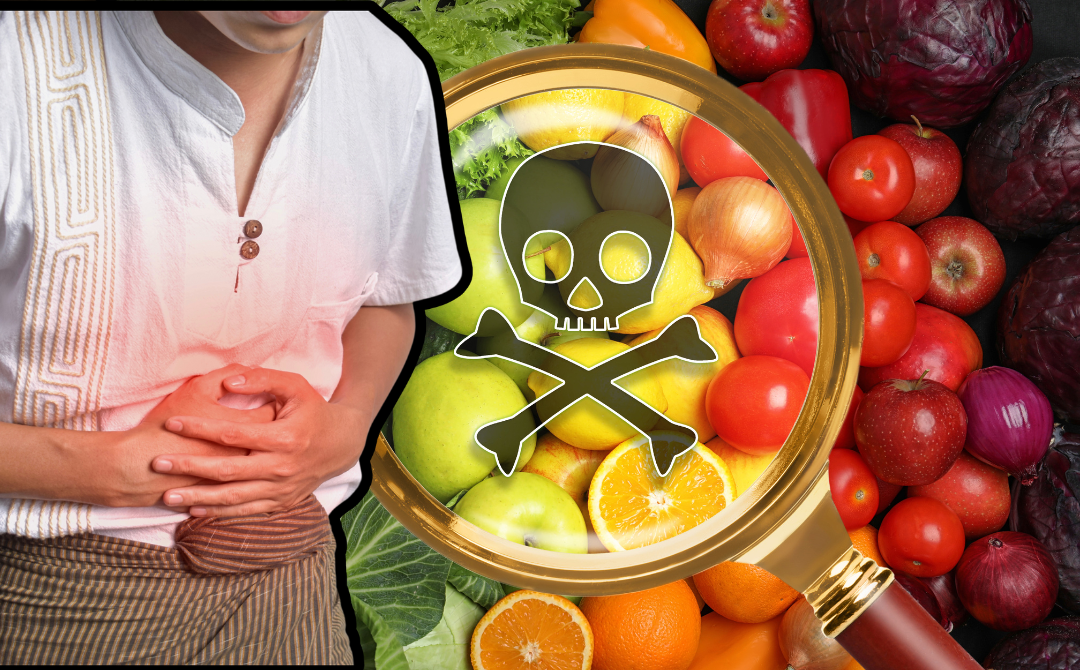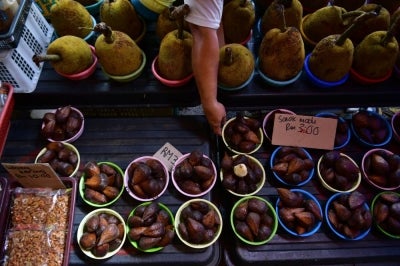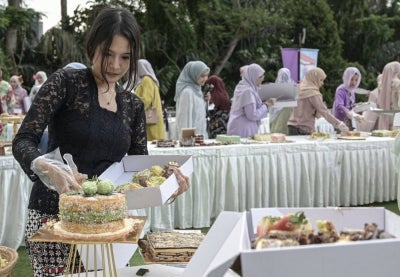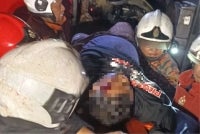How to reduce the risk of food poisoning and stay safe this Ramadan
Consuming contaminated or improperly stored food can lead to an upset stomach, diarrhoea, vomiting or even severe illness, dampening the joy of breaking fast.

RAMADAN is a time of spiritual reflection, but it is also a season of bustling food bazaars, where countless delicacies tempt fasting Muslims.
From colourful kuih to savoury Nasi Lemak and juicy Ayam Percik, the choices are endless.
However, with so much food being prepared, stored and sold daily, the risk of food poisoning becomes a serious concern.
Consuming contaminated or improperly stored food can lead to an upset stomach, diarrhoea, vomiting or even severe illness, dampening the joy of breaking fast.
To stay safe and healthy, both consumers and hawkers must take extra precautions to ensure food hygiene and freshness.
Here are several key steps that both vendors and consumers can take to reduce the risk of food poisoning, especially when purchasing food from Ramadan bazaars, according to the Health Ministry.
BUY FROM VENDORS WHO MAINTAIN GOOD HYGIENE
When choosing where to buy food, observe the vendor’s hygiene practices.
A clean stall, neatly dressed hawkers and proper food handling techniques indicate that the seller prioritises food safety.
Avoid stalls where food is exposed to dust, flies or placed on unclean surfaces.
Vendors should also use gloves or utensils to handle food, rather than touching it with bare hands.
STORE SAHUR LEFTOVERS IN THE FRIDGE IMMEDIATELY
Many families buy extra food for sahur or keep leftovers from iftar to eat later.
However, leaving food at room temperature for too long increases the risk of bacterial growth.
To stay safe, always refrigerate leftovers as soon as possible, preferably within two hours of cooking or purchasing.
This prevents harmful bacteria from multiplying and causing foodborne illnesses.
CHECK THE APPEARANCE, SMELL AND TASTE BEFORE EATING
Even if food looks fine, it is important to trust your senses before consuming it.
Spoiled food may have a strange colour, an unpleasant odour, or a sour taste.
If anything seems off, it is best to throw it away rather than risk getting sick.
Food poisoning symptoms can develop within hours and may be severe, especially for young children, pregnant women and the elderly.
CONSUME REFRIGERATED LEFTOVERS WITHIN THREE DAYS
Refrigerating food slows bacterial growth, but it does not stop it completely.
To minimise the risk of foodborne illness, eat leftovers within three days.
If food has been stored for longer, consider reheating it thoroughly or discarding it.
Keeping track of storage times helps prevent accidental consumption of spoiled food.
ALWAYS REHEAT FOOD THOROUGHLY
Reheating food properly is crucial in killing bacteria that may have grown during storage.
When warming up leftovers, ensure that they are heated all the way through, reaching a steaming-hot temperature.
Stirring or turning food while reheating helps ensure even heat distribution, reducing the risk of bacteria surviving in cold spots.
FOOD SAFETY PRACTICES FOR RAMADAN BAZAAR HAWKERS
While consumers must take steps to ensure food safety, hawkers also play a significant role in preventing food poisoning.
Vendors at Ramadan bazaars should follow strict hygiene and handling procedures to keep their food safe for consumption.
DO NOT PREPARE FOOD TOO FAR IN ADVANCE
Food that is cooked too early before selling time is at greater risk of contamination.
To maintain freshness and safety, hawkers should prepare food closer to the time it will be sold.
ENSURE FOOD IS TRANSPORTED HYGIENICALLY
During transportation, food should be kept in and incovered clean containers to prevent contact with dust, insects, or other contaminants.
Raw ingredients and cooked food should not be stored together to avoid cross-contamination.
KEEP FOOD COVERED AND PROPERLY ARRANGED
Food should be displayed in covered containers rather than exposed to the open air.
Additionally, cooked items should not be stacked on top of each other in an overlapping manner, as this can cause uneven cooling and bacterial growth.
DO NOT SELL UNSOLD COOKED FOOD FROM THE PREVIOUS DAY
Leftover food from the previous day may no longer be safe to eat, even if it looks fine.
Bacteria can multiply rapidly in cooked food that is stored improperly, leading to foodborne illness.
It is essential that vendors prepare fresh food daily rather than reselling unsold items.
MAINTAIN STRICT HYGIENE WHILE HANDLING FOOD
Hawkers must use tongs, ladles, spoons or gloves instead of their bare hands when handling food.
They should also wear head coverings to prevent hair from falling into the food, as well as aprons to keep their clothing clean.
Additionally, they must wash their hands thoroughly before preparing food and after using the toilet.
TOGETHER, WE STAY SAFE
Food poisoning is preventable if both consumers and food vendors practise proper food safety measures.
During Ramadan, when many people rely on bazaar food for iftar and suhoor, extra caution is necessary to ensure that meals are safe to eat.
By being mindful of hygiene practices, food storage and proper reheating, everyone can enjoy their Ramadan meals without the risk of falling ill.
Whether you are buying, storingor selling food, prioritising food safety will help ensure a smooth and healthy fasting month.
Download Sinar Daily application.Click Here!













